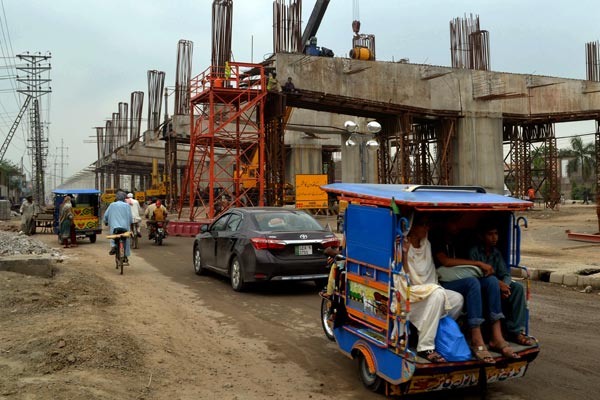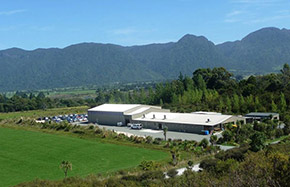Initiative to boost infrastructure, industries along route
 |
|
The Lahore rail transit project, one of the first projects under the China-Pakistan Economic Corridor strategy, is under construction in July, 2016. [Photo/Xinhua] |
China Communications Construction Co, one of the country's biggest infrastructure project providers by market share, will boost its overseas sales revenue to 50 percent of its total by 2035 via the development of the Belt and Road Initiative, diversified operation models, and overseas mergers and acquisitions, according to its chairman.
The company's global sales accounted for 35 percent of its annual sales revenue last year, due to the rapid growth of business in countries along the Belt and Road Initiative, including Gwadar Port in Pakistan's Baluchistan region, Sri Lanka's Colombo International Financial City project and the Mombasa-Nairobi Standard Gauge Railway in Kenya.
Liu Qitao, company chairman, said the tangible results of the development of the Belt and Road Initiative will generate new growth momentum this year. That will boost revenue growth for both global and Chinese companies, while improving their ability to conduct big-ticket projects and export excess industrial capacity to economies along the two trading routes.
"For example, the flagship project Gwadar Port is the third-largest deep-water port in Pakistan, a country heavily involved in the Belt and Road Initiative. The harbor will be a strategic stronghold along the China-Pakistan Economic Corridor," Liu said.
The port now operates three multifunctional piers with an annual throughput capacity of between 50,000 and 70,000 20-foot equivalent units, as well as bringing 20,000 jobs to locals. It will also serve as a trade gateway for East and Central Asian countries to other parts of the world.
After the completion of the construction, CCCC will also be responsible for a series of follow-up projects, such as the operation of a free-trade zone in Gwadar Port.
As a pioneer of Belt and Road Initiative projects, the company has established 193 branches and offices in 103 countries and regions. It has more than 60 subsidiaries, including China Harbor Engineering, China Road and Bridge, and Shanghai Zhenhua Heavy Industries. It employed more than 35,700 people in 135 countries and regions by the end of last year.
The group and its subsidiaries have been responsible for various projects in Southeast Asia, Central Asia, Africa and the Middle East, with construction of more than 2,600 kilometers of highways; 180 bridges, with a total length of 105 km; 63 deep-water berths; 10 airports; and 754 container cranes already completed and 1,800 km of railroad under construction.
CCCC has gradually transferred its pillar business from engineering, procurement and construction projects into new business models such as build-operate-transfer, build-own-operate and public-private-partnership for both public and private sectors.
The company is contracted to build the entire 48.56-km-long E763 Highway, an important part of the Pan-European Transport Corridor II, as well as an important channel linking the Serbian capital of Belgrade to the Port of Bar in Montenegro.
CRBC, its subsidiary, has also signed a memorandum of understanding with Serbia to build the country's first industrial park. The two projects are expected to promote international collaboration in production capacity, help Serbia to upgrade its industrial infrastructure and boost the economy of countries along the Belt and Road Initiative.
Denis Depoux, a senior partner at Roland Berger Strategy Consultants, said the Belt and Road Initiative is critical for European companies. For example, the Silk Road Economic Belt starts in China and ends in Europe, and every country between those points is involved. That means the initiative is important for all destination countries and regions.
"China is increasing its share of Chinese technologies, but as a starting point, there is also a significant share of international technologies," Depoux said.
"Its companies, primarily State-owned enterprises, are keen to cooperate with foreign enterprises in order to work in 'third party' countries anywhere along the initiative."
Contact the writers at [email protected]























